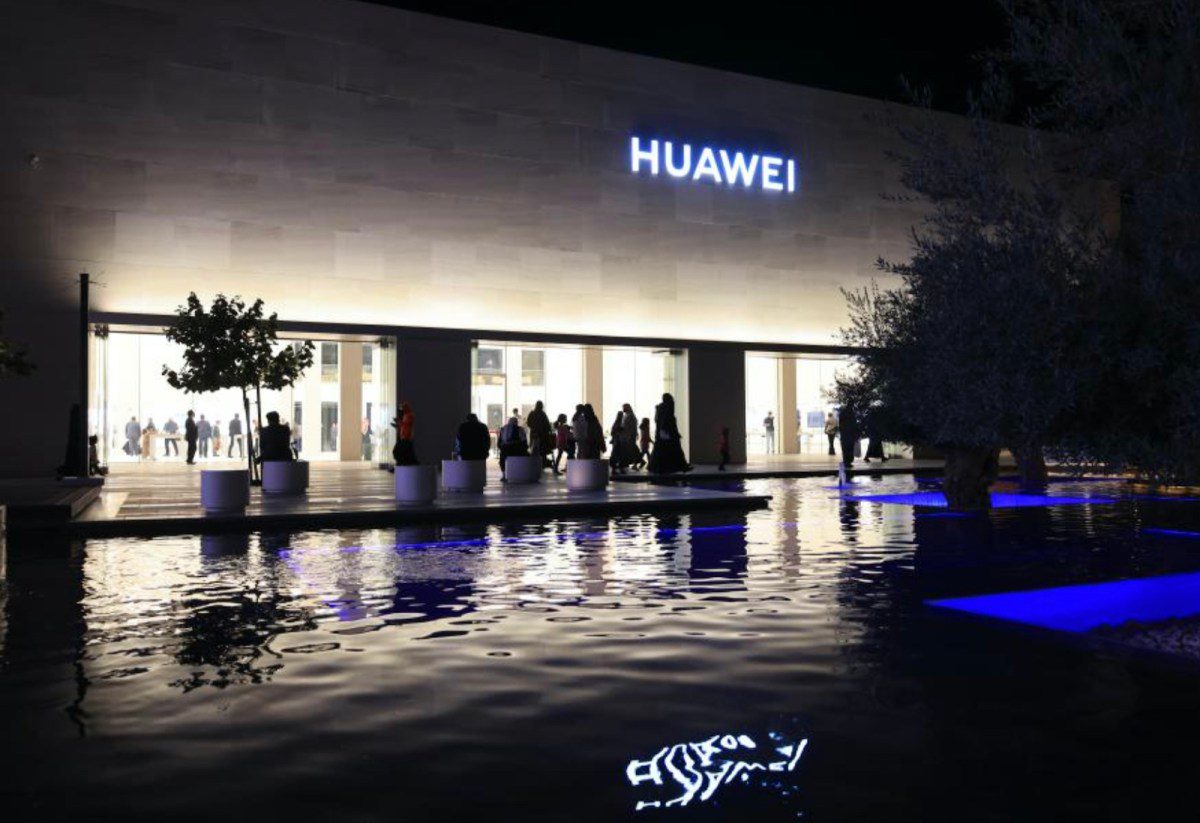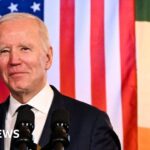Global Courant 2023-04-14 12:58:33
News reports suggest that Huawei is upgrading its presence in Saudi Arabia to a regional headquarters, underlining the Chinese tech giant’s commitment to the economic and technological development of the kingdom and the region.
Saudi Arabia’s Regional Headquarters Program requires a multinational corporation seeking to do business with Saudi government agencies to establish its regional headquarters for the Middle East and North Africa in the country. It is a joint initiative of the Saudi Ministry of Investment and the Royal Commission for the City of Riyadh and will come into force in January 2024.
This follows the signing of a business agreement with Huawei by Chinese President Xi Jinping and Saudi King Salman during Xi’s visit to Saudi Arabia last December. That agreement covers cloud computing, data centers and the establishment of high-tech complexes in several Saudi Arabian cities.
The two leaders also signed a comprehensive strategic partnership agreement to “firmly support each other’s core interests” and a “harmonization plan” between China’s Belt and Road Initiative and Saudi Arabia’s Vision 2030 blueprint for economic and technological development, which aims to boost the economy of the kingdom to diversify. away from dependence on oil exports.
Vision 2030, the brainchild of Crown Prince Mohammed bin Salman (MBS), Prime Minister and Chairman of the Council for Economic and Development Affairs, aims to transform Saudi Arabia into a “global investment powerhouse” and “a global hub connecting… Asia , Europe and Africa.” The participation of Huawei, Siemens and other foreign technology leaders is key to realizing the vision.
Saudi Arabia has a futuristic vision of its post-oil economy. Image: Facebook
In that regard, the two sides have signed a separate agreement covering the digital economy (e-commerce and fintech), communication and information technologies (including nationwide broadband coverage), their commercial and industrial application, and research on emerging technologies.
These technologies, which overlap with Huawei’s business portfolio, include:
Mobile communications Artificial intelligence Advanced computing Quantum information technology Robots Undersea cables
In particular, Huawei is likely to be involved in the NEOM Special Economic Zone, which stretches from the Red Sea coast in the northwest of the country to the high mountains in the interior where it is possible to ski in the winter season. NEOM includes an international airport, seaside and mountain resorts, a floating industrial complex and a futuristic city called “The Line”.
The Line is designed as a smart city 170 kilometers long, 200 meters wide and 500 meters high, extending in a straight line east of the coast. No roads or cars are allowed in the city.
Instead, residents – nine million of whom are targeted by 2045 – will travel on public transport powered by renewable energy. Jonathan Gornall described The Line’s concept and historical antecedents for Global Courant last September. Delayed by Covid, construction is now reportedly underway.
The industrial complex, called Oxagon, will provide renewable energy, autonomous mobility, food production, healthcare, telecoms, aerospace, robotics and other technologies. In August 2021, ACWA Power, Air Products and the investment company NEOM formed a joint venture to build the world’s largest green hydrogen and green ammonia plant, which will be powered by renewable energy. It is planned to be commissioned in 2025.
In October 2021, Huawei Digital Power signed a contract with SEPCOIII (SEPCO3, a Chinese engineering and construction company and power plant operator) to supply Saudi Arabia’s Red Sea project with 400 MW of photovoltaic cells and a battery energy storage facility of 1,300 MWh. The battery energy storage facility is one of the largest such facilities in the world.
More recently, at the Mobile World Congress 2023 held in Barcelona, Spain from February 27 to March 2, Huawei and Saudi Arabian telecom operator Zain signed a MoU to build a 5.5G network for individual, corporate and government customers. On the commercial side, the project encompasses the Internet of Things (IoT) and private network solutions, cloud computing, fintech, business support and drones.
On November 30, 2022, Huawei and Saudi Telecom Company (STC) announced that their SuperLink single-antenna 10 Gbps solution in Dammam had successfully performed on live networks for six months.
The design reduces the number of antennas by two-thirds and the amount of hardware by 70%, facilitating the deployment of high-bandwidth 5G services in suburban areas. Dammam is the capital of the Eastern Province of Saudi Arabia.
Saudi customers at a Huawei store in Riyadh. Image: Facebook
Also note that in November 2020, Huawei delivered a prefabricated modular data center to Dawiyat Integrated Telecommunications & Information Technology Company for use with its national broadband network. Dawiyat is a wholly owned subsidiary of the Saudi Electricity Company.
Commenting on the transaction, Saleh Al Owain, director of technical affairs at Dawiyat, said something that may have stirred China-fearing US politicians and diplomats and explains why Huawei sees so many business opportunities despite their efforts to sanction the company.
“All National Grid substations are considered national security assets. Dawiyat’s main goal is to participate in the Saudi Vision 2030 initiatives, monetize National Grid assets and of course continue to comply with all National Grid safety standards and regulations,” said Al Owain.
“The real challenge is, how can we maintain a huge number of sites across the Kingdom while maintaining full visibility to ensure physical site security and protection against vandalism, and make each site robust to harsh weather conditions? The only solution that made sense was Huawei’s container-based shelter solution. No other solution came close in terms of performance, functionality, robustness and cost,” he added.
Follow this writer on Twitter: @ScottFo83517667
Similar:
Loading…








